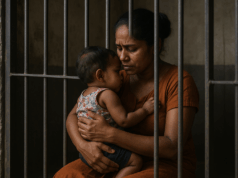Thursday 11th January, 2024
Most countries in the world are pushing the envelope of smart farming, but Sri Lankan farmers are still struggling to buy agricultural inputs, protect their cultivations against pests and crop-damaging wildlife, and dispose of their produce to recover production costs. Not even locally growable food crops such as onions and finger millet are produced in sufficient amounts here to cater to the domestic demand. The farming community finds itself in a situation where most of its members seriously consider leaving the agricultural sector owing to extremely poor returns on their investment or losses. This is the report card of the politicians who never miss an opportunity to boast of what they call their contribution to the development of agriculture. These worthies are now trying to shift our focus from their failures, which are legion, to crop losses caused by wildlife. This is a subtle attempt to direct farmers’ anger at animals, we reckon.
Politicians are notorious for oversimplifying complex issues and offering binary solutions, which more often than not lead to quandaries. Minister of Agriculture Mahinda Amaraweera lamented in Parliament, on Tuesday (09), that Sri Lanka had missed an opportunity to send its monkeys to China. In answer to a question from an MP, he said that a plan to send as many as 100,000 crop-raiding monkeys to China, which had about 20,000 zoos, had gone awry due to legal action taken by animal rights groups. He also said the farmers who had guns were without ammunition.
Crop damage or losses due to depredations of wildlife is a very serious issue, which has to be tackled as a national priority. According to Mongabay, during the first half of 2022, around 144,989 metric tons of 28 types of crops, including paddy and vegetables, and 93 million coconuts were destroyed by animals, causing an overall loss of Rs. 30,215 million. Many farmers have been reduced to penury and are even driven to suicide, unable to feed and clothe their families much less pay back loans. It is only natural that they are resentful and hate animals that destroy their crops. No amount of pontificating about the virtues of protecting the lives of sentient beings will assuage their anger. They are desperate to have the crop-damaging wildlife warded off or contained or even physically eliminated. One has to walk a mile in a farmer’s shoes to realise the predicament of the farming community.
Monkeys are believed to be the worst crop raiders in this country. But there are other animals that destroy cultivations and some of them are elephants, porcupines, wild boar and giant squirrels. Are we to export these creatures as well to China or any other country?
Let those who are all out to send monkeys to China be urged to read what has been revealed about
China in Peter Singer’s seminal book, Animal Liberation Now, which is considered the bible of animal rights activists and animal welfare movements the world over: “Zhiyan Consulting, a Chinese business consulting firm, states that in 2021, the demand for rats and mice for scientific purposes was 49.8 million, for rabbits 2.2 million, for non-human primates 129,000 and for dogs 64,000, making a total of more than 52 million animals (pp 30 and 31).” This fact must be borne in mind, when calls are made for sending monkeys to China.
Minister Amaraweera has revealed, at a discussion with a group of agricultural experts, that post-harvest losses amount to as much as 40%. According to what transpired at the aforesaid meeting, in 2021 food sufficient for 10 million people went to waste. If the wild animals that destroy crops are to be ‘banished’, shouldn’t those who have failed to minimise the colossal waste of food be dealt with in a similar manner?
Successive governments have only paid lip service to the development of the agricultural sector, which lacks storage and transport facilities and state assistance to keep production costs low. If post-harvest losses can be minimised significantly, perhaps it may be possible to increase the national agricultural output without destroying the crop-damaging wildlife and opening up more land, especially precious peripheral forests, for cultivation.
Forest tanks and ecosystems that support wildlife have been neglected or encroached upon over the decades. When these habitats are destroyed, animals raid cultivations and villages in search of food and water. Elephant corridors have been blocked, and the human-jumbo conflict has escalated as a result. The task of managing and conserving peripheral forests has been removed from the purview of the Forest Department and placed under the District Secretaries so that the backers of the ruling party can encroach on them by intimidating malleable state officials with little or no expertise in forest conservation.
However essential short-term measures may be to enable farmers to protect their cultivations against crop-damaging wildlife and minimise losses, what is needed is to find a durable solution to strike a fine balance between the protection of agricultural interests and the wildlife conservation. This is a delicate task to be carried out cautiously with no room being left for politically convenient extreme action. A holistic approach needs to be adopted so that conflicts between farmers and wild animals can be reduced to a bare minimum. It requires a great deal of innovative thinking and meticulous planning, and should be left to experts representing all stakeholders.








